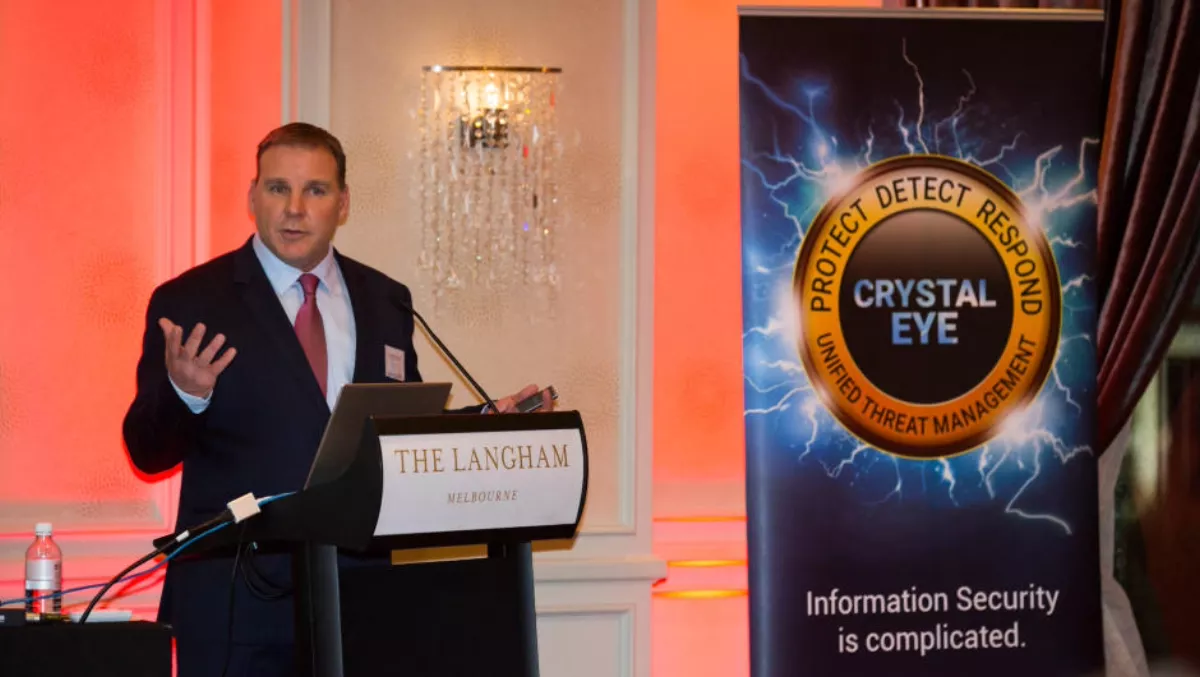
Interview: Former Anonymous member turns his talents toward SMB security
Those familiar with Anonymous - one of the biggest forces of social change in the digital age - may also recognise the name Adam Bennett. He was one of the underpinning members of the global movement, and he has now moved on to create a new cybersecurity service right here in Australia.
We chatted with Adam about his Anonymous origins, the state of cybersecurity and cyber threats in Australia, and what his new company Red Piranha is all about.
Can you explain a little about your role in Anonymous, what you do now, and one thing that inspires you?
I've always been an open source and privacy advocate, and that's what my involvement in Anonymous stood for. For me, I was fighting the right to stay anonymous online because privacy is not about hiding, it's about consent.
However, the world has changed, and people are much more aware of the need for data privacy (think of the new regulation laws such as GDPR and Notifiable Data Breach scheme). Now I put my passion and expertise to use in other ways.
Do you think there are specific cyber threats that Australia, New Zealand and the greater Asia Pacific region experience more aggressively or more often than in other parts of the world?
Yes. I believe there is one specific cyber threat experienced more often in the Australian, New Zealand and greater Asia Pacific region. Before we look at what that is, it's important to address two aspects that have changed over the past decade:
- the number of attacks in Australia and APAC region have increased
- our reliance on digital data in business has increased significantly
This reliance on digital data increases the importance of protecting systems and is also directly related to the increase of attacks.
In Australia, we've recently seen a huge spike in ransomware – cyber-criminal gangs profiting from a low level sophisticated of attack. This type of attack has been easy to mitigate yet we still see many organisations without protection.
The increased ease for these types of attacks to bring in easy profits for organised crime will only see further increases in attacks in Australia and the APAC region.
The Australian Federal Government and many of the state governments are now adopting their own cybersecurity strategies to protect the country – what are your thoughts on these strategies?
In 2015, the Australian Government identified cyber security as one of six key growth sectors where Australia can establish a competitive strength.
The Australian Government made the move first to identify the problem, then introduce programs to help drive things forward. A great program recently introduced is AustCyber, who is also one of our partners. Even though it's a new organisation, it has introduced several programs beneficial to Australian information security companies like ours.
I think the Government should also continue to foster R-D grants and look to remove red tape for receiving these grants, especially around larger projects that take longer to get to market.
Australia has also been ramping up data security, and data sovereignty for users. What does this mean for every Australian?
Awareness of the reality of cyber threats, the importance of cyber security and keeping data safe on shore. Regulations, such as GDPR and the Notifiable Data Breach Scheme implemented in February, are a great first step in building awareness of cyber threats in the Australian ecosystem.
Organisations are becoming aware of the importance of protecting customer data, while Australia is beginning to understand the realities of cyber threats. That said, I believe there's a lot more work to do ramp up data security in Australia. Every Aussie is at risk.
Moving on to Red Piranha, it's interesting that you chose cybersecurity as your next move from Anonymous – and by the looks of your funding rounds, it's a move that has paid off.
You mentioned in a press release that Red Piranha was born out of frustration because SMBs are so short on time, budgets and understanding of security solutions. Could you elaborate on that?
Providing a solution for the SMB landscape is a move that made sense. My interest has always been to help those with a lack of knowledge, money and resources. At Red Piranha, we are committed to helping SMBs who may not be able to protect themselves.
You've developed your Crystal Eye solution specifically for SMBs. Why are SMBs so vulnerable to cyber threats?
Anyone is vulnerable to cyber threats, but a lack of money, time and resources mean SMBs are more vulnerable compared to other larger organisations.
In Australia, SMBs have been forgotten about when it comes to the development of cyber security products. SMBs struggle to afford complex, multifaceted cyber security solutions typically designed for large enterprises.
Until now, there have not been suitable security products for SMBs that offer the types of controls and protections they need, are affordable and easy to deploy and manage.
How is Red Piranha being integrated into Australia's wider threat intelligence ecosystem?
We're currently working in partnerships with various organisations, including AustCyber. As mentioned above, AustCyber is a federal government initiative, with an objective to increase Australia's national threat intelligence ecosystem.
Is there anything else you would like to add?
Australia has some very talented passionate people involved in the industry and overall, I think it's in great shape. We just need more people! I have found IT administrators in Australia more vigilant than their counterparts globally, but they still need help.
Organisations and senior management teams need to be more involved and educated of the risks to ensure they buy-in and understand the protection they need.


